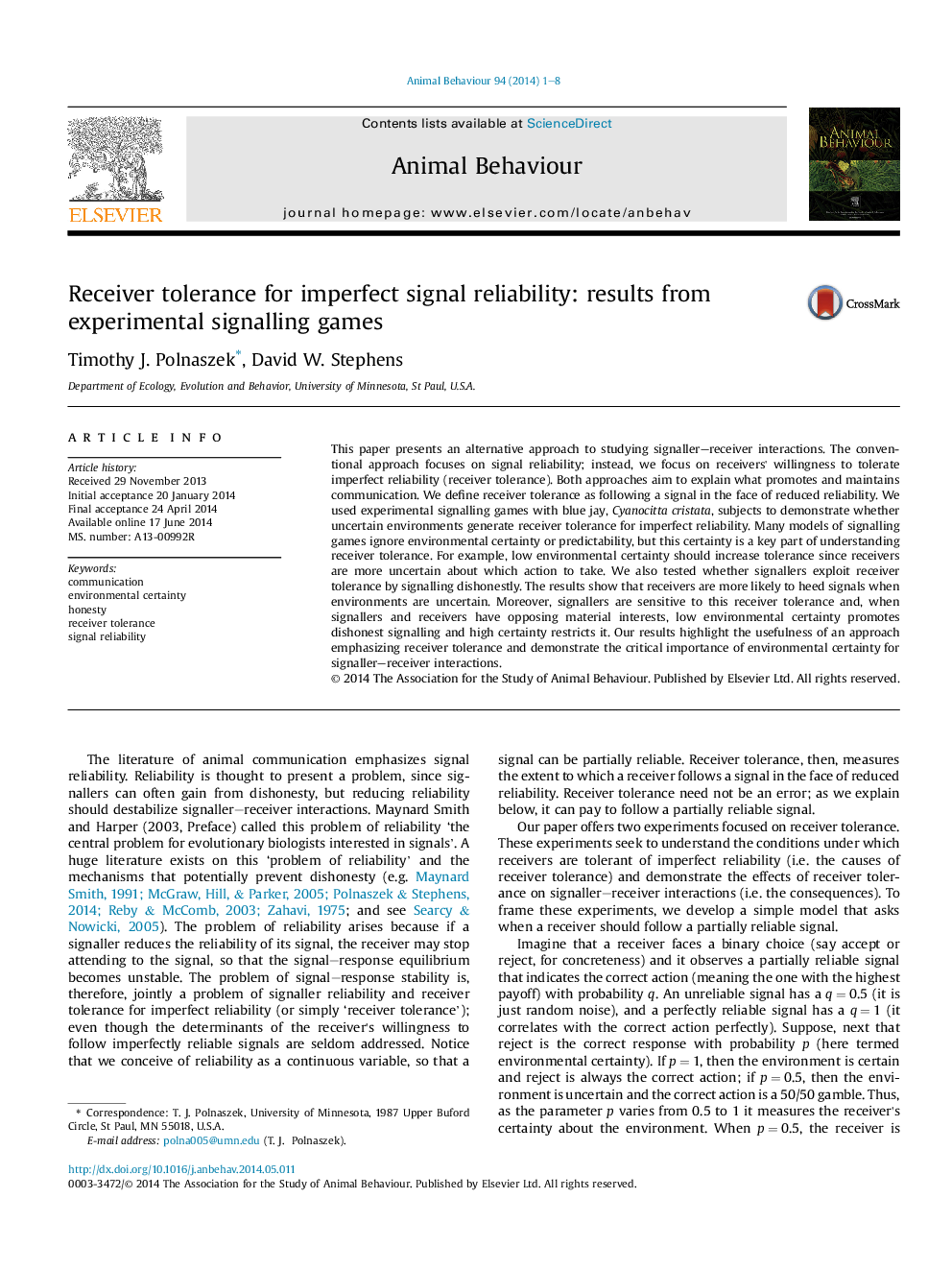| Article ID | Journal | Published Year | Pages | File Type |
|---|---|---|---|---|
| 2416416 | Animal Behaviour | 2014 | 8 Pages |
Abstract
This paper presents an alternative approach to studying signaller-receiver interactions. The conventional approach focuses on signal reliability; instead, we focus on receivers' willingness to tolerate imperfect reliability (receiver tolerance). Both approaches aim to explain what promotes and maintains communication. We define receiver tolerance as following a signal in the face of reduced reliability. We used experimental signalling games with blue jay, Cyanocitta cristata, subjects to demonstrate whether uncertain environments generate receiver tolerance for imperfect reliability. Many models of signalling games ignore environmental certainty or predictability, but this certainty is a key part of understanding receiver tolerance. For example, low environmental certainty should increase tolerance since receivers are more uncertain about which action to take. We also tested whether signallers exploit receiver tolerance by signalling dishonestly. The results show that receivers are more likely to heed signals when environments are uncertain. Moreover, signallers are sensitive to this receiver tolerance and, when signallers and receivers have opposing material interests, low environmental certainty promotes dishonest signalling and high certainty restricts it. Our results highlight the usefulness of an approach emphasizing receiver tolerance and demonstrate the critical importance of environmental certainty for signaller-receiver interactions.
Related Topics
Life Sciences
Agricultural and Biological Sciences
Animal Science and Zoology
Authors
Timothy J. Polnaszek, David W. Stephens,
